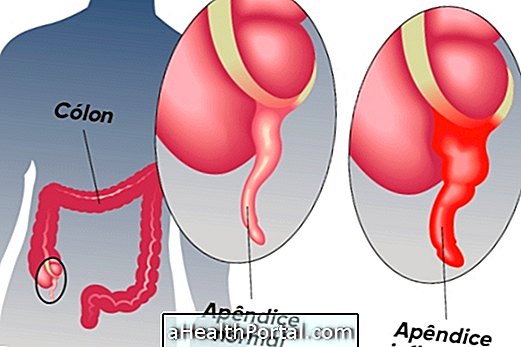To quit smoking, it is important to decide on your own initiative to end cigarette smoking by seeking out the benefits of quitting, such as helping to improve the functioning of the heart and lungs, and decreasing the risk of developing cardiovascular problems such as heart attack or Stroke and even cancer, for example.
It is possible to quit smoking without resorting to medical help, however, it is always important to follow some tips to avoid relapse and therefore complying with some guidelines to quit smoking can make the cigarette addiction disappear without great sacrifices.
Some tips for quitting smoking include:



Tip 1 - Set a Time to Quit Smoking
It is critical to set a date or time to completely quit, no more than 30 days after you thought about quitting.
For example, on May 1 you can plan and visualize new life without smoking and determine the last possible day to quit smoking, such as May 30, or set a meaningful day, such as finishing a course, having a new job or finishing a packet, for example it becomes more motivating and easier to start.
Tip 2 - Remove cigarette related objects
To quit smoking you should start by taking home and work all cigarette related objects, such as ashtrays, lighters, or old cigarette packs.
Tip 3 - Avoid the smell
Another important tip is to avoid the smell of cigarettes, so you should wash clothes, curtains, sheets, towels and any other object that may smell of cigarettes. Also, avoiding places where they are smoking is also advisable due to the smell of smoke.
Tip 4 - Eat when you want to smoke
When you stop smoking, you should keep a sugar-free bullet, a glass of water or tea, pieces of ginger or guava juice, to chew or drink whenever you feel like smoking, while also helping to reduce the sensation of hunger.
In addition, it is important to avoid foods high in fat and sugar at this time, because the risk of gaining weight is greater, and it is important to practice physical activity during this period. Watch more tips in the following video:

Tip 5 - Do enjoyable activities
When the will to smoke comes, it is important for the smoker to be distracted by doing activities that will give him pleasure and replace the feeling of loss, for example, going outdoors, going to the beach or garden.
In addition, you should do an activity that takes up time and hands daily, such as crocheting, gardening, painting or exercising, are great options.
Tip 6 - Involve the family
To quit smoking, the process is easier and less costly when family and close friends are involved in the process and help, respecting the characteristic symptoms of withdrawal, such as irritability, anxiety, depression, restlessness, physical discomfort, head and sleep disorders, for example.
In addition to these tips, there are other options that can help quit smoking, such as green tea cigarette or some remedies with varenicline and bupropion, which help the body to adapt and detoxify from cigarette addiction.
Test to assess the degree of cigarette addiction
In order to assess the degree of cigarette addiction, the Fagerstrom test can be performed.
| Question | options |
| 1. How long after waking do you smoke the first cigarette? | a) up to 5 min - 3 points b) 6 to 30 min - 2 points c) 31 to 60 min -1 point d) + 60 min: 0 points |
| 2. Do you find it difficult to not smoke in forbidden places (such as church, movie theater)? | a) Yes - 1 point b) No - 0 points |
| 3. Which cigarette satisfies you the most? |
a) 1st in the morning - 1 point b) other - 0 points |
| 4. How many cigarettes do you smoke per day? | a) up to 10 cig - 0 points b) 11 to 20 cig- 1 point c) 21-30 cig - 2 points d) + 30 cig - 3 points |
| 5. Do you smoke more often in the morning? | a) Yes - 1 point b) No - 0 points |
| 6. Do you smoke even when you are in bed? | a) Yes - 1 point b) No - 0 points |
After answering the questionnaire, one must add the points of all the questions and analyze the result, being that:
- 0 to 2 points - very low dependence
- 3 to 4 points - low dependence
- 5 points - average dependence
- 6 to 7 points - high dependence
- 8 to 10 points - very high dependence
Usually, the greater the degree of dependence the greater the difficulty of quitting smoking, the more important is the determination to stop smoking.
In some cases, medical follow-up may be required to start using medicines, such as pills or nicotine patch, to help stop smoking.


























